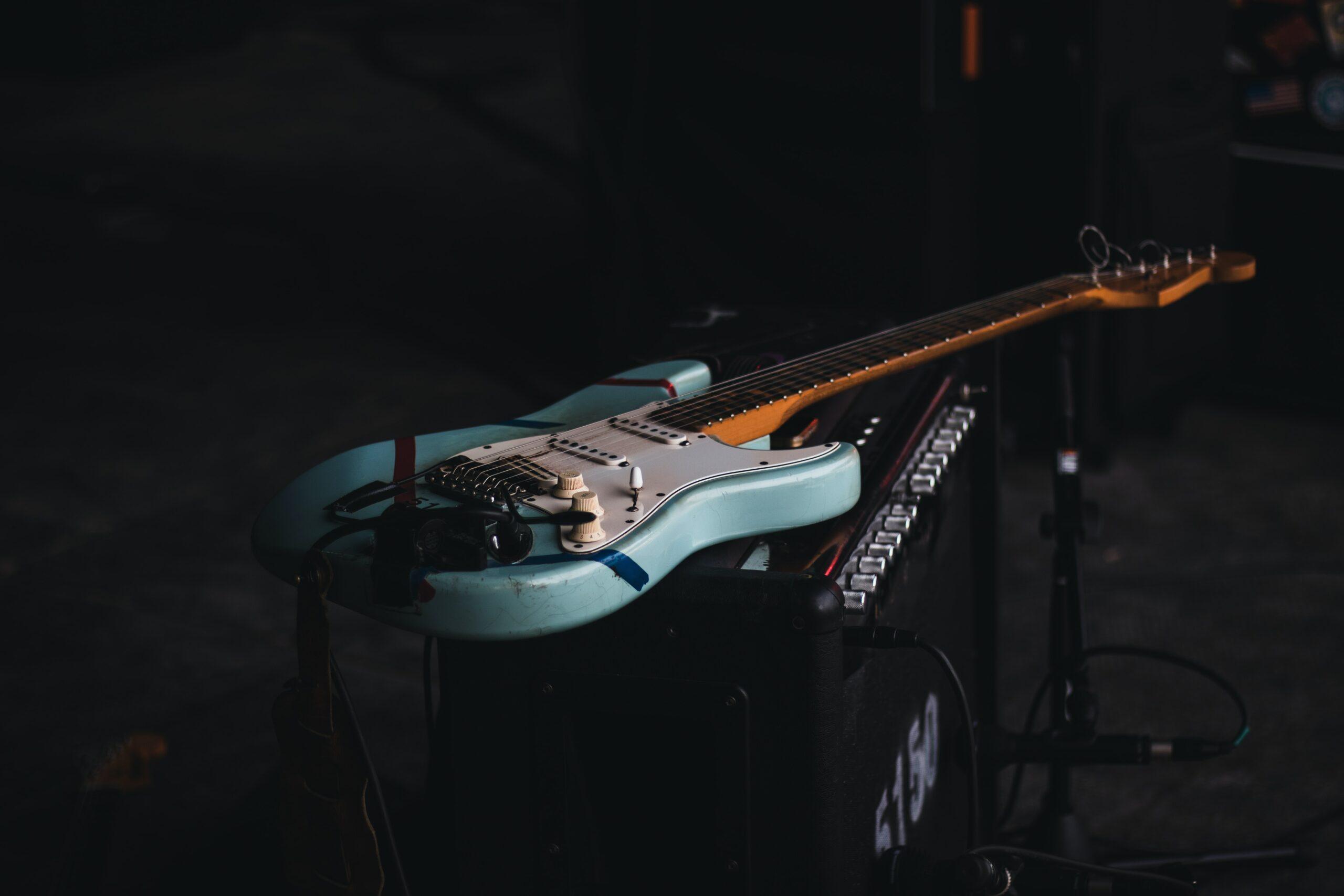You’ve got a week and you’re going on a solo adventure trip to France. You’ve been looking forward to this for a long time and finally the moment has come. You pack your guitar, brush up on your French and meet the ferry at exactly 12.00 noon. Your fingers are crossed. You’ve got your music and a dream. Your only concern is about the guitar. Is it well-tuned? You’ve never felt more nervous than when you’re about to play your first tune on the ferry. Will people like it? Do you play in C or do you prefer to improvise in A? These are just some of the thoughts running through your head while on the journey to enjoy a week in the French Riviera. You want to make sure your guitar plays smoothly all the time and you especially don’t want to upset the delicate balance of sound you’ve worked hard to achieve. This article will advise you of everything you need to know about tuning a travel guitar. So sit back, relax and get ready to play some tunes. Let’s get started.
Take It Easy
When you get on the boat and start playing, you’ll feel a rush of adrenaline. It’s a beautiful sunny day and the sea is sparkling like a mirror. You’re traveling to a foreign country and you don’t know a single word in French, but you’re totally captivated by the scenery. You’ve got a week and you’re not going to waste a single moment. You play and laugh, and soon enough, you feel an even stronger pull to the next note. Before you know it, the week is gone and you were just getting started. It’s important to take it easy and enjoy the journey as much as possible. Don’t try to force it or push beyond your limits. You’ll only upset yourself and end up ruining your trip. So keep that in mind.
Get It In Tune
The best way to enjoy your trip is by getting the most out of your guitar. You’ve been looking forward to this for a long time and finally getting the chance to play is more than exciting. You’ve got a beautiful instrument in your hands and you want to make sure it sounds its best. You started working on your guitar about a year ago and with a little bit of luck, you’ve managed to get it in tune. The last tuning you did was about three months ago and since then, it’s been needing some freshening up. You’d like to know it like it was brand-new, but you also don’t want to ruin the sound you’ve worked so hard to achieve. It’s all about finding that middle ground. You also need to do this at least a few times a week to keep the sound good. Regular maintenance will also make it like new again and allow you to take the sound you’ve worked so hard to create on a European adventure.
Try Different Tunings
You’ve got a lot of guitar players around you on the boat. Some might even be seasoned professional musicians while others might just be beginners. You don’t want to keep playing the same old guitar tuning because it gets awfully boring after a while. Instead, you want to try something new. It’s almost like you’re venturing into uncharted territory and you want to make sure you’re making the right decisions. Start by trying out different tunings. You’ve got an acoustic guitar and you’ve got a very limited amount of space. You don’t want to overwhelm the boat’s other passengers with your sound, so you should avoid open chords altogether and go for more subtle tones. Remember though, you’re on holiday and you want to have a good time. If you don’t feel comfortable experimenting with different tunings, then go with what you know. After all, you’ve been working hard to get that sound you have and you don’t want to lose it just because you’re not used to playing in a different key. But you’ll also enjoy the challenge of trying out new things. Take your time and work your way gradually to the point where you can play more advanced songs. You never know, you might like a certain kind of music and want to play it more often than you normally would. So it’s always good to have options.
Choose The Right Guitar
It’s important to get the right guitar for the task you’re working on. There are several different types of guitars that you can choose from and each one has its perks. For example, if you want to create a more polished and professional sound, then you might want to go for a classical guitar. They usually have a more mellow tone and shine more in the lows than they do in the highs. This is ideal for mellow or romantic songs. Then there’s the steel-string acoustic guitar. These are thick and contain more steel than a regular acoustic. They don’t have the high-pitched twang that a classical guitar has and they vibrate more freely. This allows for more improvisation and a more open-ended sound. While these are both great guitars, if you want to play music for tourists on a European cruise ship, then you might want to go for a more affordable option. You don’t want to play the same songs every night, especially if some of them are more advanced. The choice is yours. It’s all about what you prefer and what you can afford. Remember, your trip is about having fun and being creative, so go for what gives you the best vibe.
Learn Some Chords
Learning chords can be a pain. There are several different types of chords and they all have letters assigned to them. They aren’t exactly easy to remember, especially when you’re not used to playing in a different key. But that’s what you’ve got to deal with. Once you learn them and get used to them, it all becomes second nature. It might even become easier than playing off the beat. Chords are a great way to add another dimension to your songs. Even if you don’t play an instrument, you can still sing along and tell what key you’re in. Learning some chords will certainly add another layer of enjoyment to your trip. It’s easy to do and it won’t take you long to learn. The best thing about learning chords is that they’ll make playing music much easier. You’ll have a reference point for when you get stuck. For example, if you find that the tune you’re playing doesn’t have the right feel, but you don’t know what key it’s in, you can simply look up the chord progression for that song and improvise from there. Learning chords is a great way to ensure you have everything organized before you leave and it’ll make the whole process much easier. Don’t forget, having everything organized is important if you want to have a good time on your trip. Have everything written down and if you have any questions, then just ask the people around you. They’ll be more than happy to help. Learning chords is an essential part of playing music on the go because it makes playing in any key more convenient. Just make sure you practice a lot so that it all becomes second nature.
Try Out A Few Different Amplifiers
You don’t want to overload your guitar. There’s a reason why guitars aren’t usually louder than other types of instruments. It has to do with how they’re tuned. If you want to play music on the go, then you’ll need to find a way to amplify it. There are several different types of amplifiers that you can choose from and each one has its perks. For example, if you want a loud sound, then you might want to go for an amplifier designed for that purpose. These types of amplifiers will have higher gain settings and be able to output more power. They’re also usually less costly than other types of amplifiers. The downside is that they can be a little more complicated to use. Still, if you want to play music on the go, then you’ll need something that can handle the job. Different amplifiers have different settings and characteristics, so you’ll have to find out what works best with your guitar and the sound you’re trying to produce. It’s always best to start out simple and then gradually work your way up to the more complex settings. Play around with a few different types of amplifiers and see which one brings the best, loudest sound for the money you have to spend. You don’t want to ruin your trip by blowing your budget on an expensive amplifier that won’t work well with your guitar.




